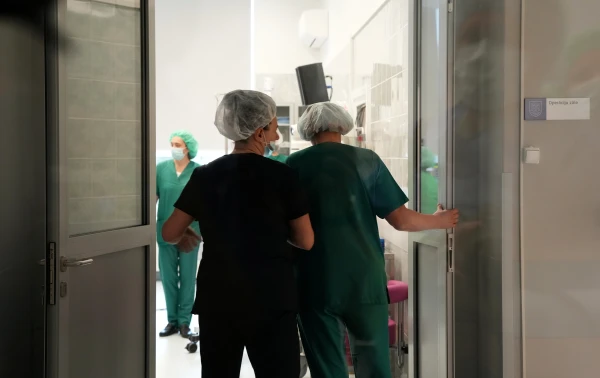
An innovative microsurgical operation aimed at significantly reducing the risk of lymphedema — arm swelling — in women after breast cancer treatment has been performed for the first time in Latvia at the Pauls Stradins Clinical University Hospital, reports hospital representative Zane Greta Grante, according to LETA.
Lymphedema develops due to impaired lymphatic drainage after the removal of axillary lymph nodes. This issue affects many breast cancer patients — approximately 30% of women develop lymphedema in the arm after complete removal of axillary lymph nodes, which significantly reduces quality of life, the hospital explains.
The surgery was performed by a team from the breast surgery department of the Stradins Hospital Breast Disease Center, led by Elena Maksimenko in collaboration with microsurgeon Kristaps Blūms. This type of surgery was conducted for the first time in Latvia.
During the surgery, the lymphatic vessels of the arm were identified and specifically marked, which were preserved as much as possible during the removal of lymph nodes, the hospital clarified. To restore lymphatic drainage from the arm, the microsurgeon connected the damaged lymphatic vessels to the nearest vein, creating a lymphovenous anastomosis — a fine microsurgical connection that provides an alternative pathway for lymphatic drainage.
"This method significantly reduces the risk of postoperative lymphedema — studies show that it can decrease from approximately 30% to just 3%," noted Maksimenko.
She emphasizes that this method is an important innovation in the treatment and rehabilitation of breast cancer patients.
Until now, insufficient attention has been paid to the prevention and treatment of lymphedema in Latvia, the hospital adds.













